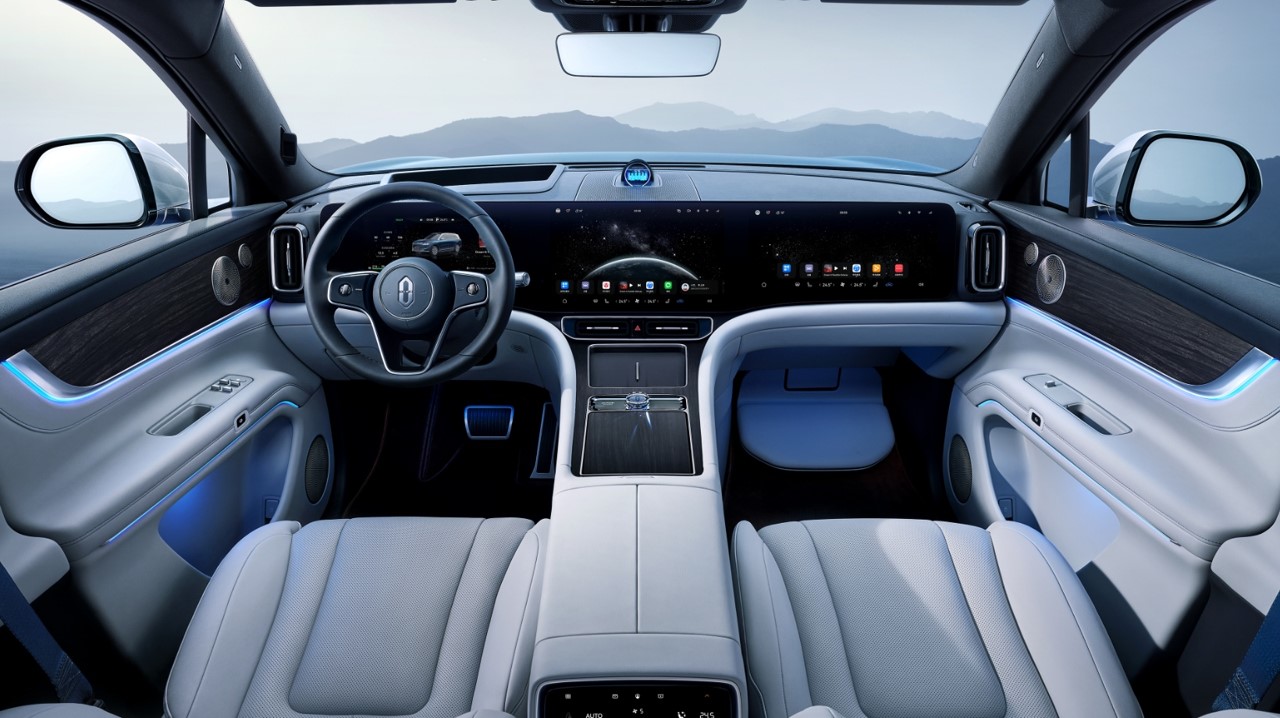Following the remote detonation of Lebanon's communication tools and electronic devices such as pagers and walkie-talkies by Israel, multiple U.S. media outlets have reported that, citing national security concerns, the U.S. Commerce Department proposed on Monday to ban the use of automotive software and hardware from China or Russia in connected vehicles in the United States. This includes connected vehicle software that collects and stores driver and passenger data as well as information about U.S. infrastructure, and autonomous driving software and components.
The software ban will take effect for the 2027 model year, which includes some vehicles released in 2026. The hardware ban for autonomous driving will take effect three years later, starting with the 2030 model year.
The first proposed rule targets connected vehicles capable of collecting and storing driver and passenger data as well as information about U.S. infrastructure. The rule would prohibit the import or sale of systems designed, developed, manufactured, or supplied by "entities" regarded closely associated with China or Russia, including vehicles with connected features such as Bluetooth, cellular, satellite, and Wi-Fi modules from these countries. If passed, this software ban will take effect from the 2027 model year vehicles.
The second proposed rule will prohibit the import and sale of vehicles with autonomous driving hardware from China or Russia. This will take effect in the 2030 model year or January 1, 2029 (for commodities without a model year). The ban will apply to all wheeled vehicles on public roads, including cars, trucks, and buses, but will not include vehicles not used on public roads, such as agricultural and mining vehicles. At the same time, the import and use of autonomous driving technology parts manufactured by Russia or China will also be prohibited, and vehicles using Russian or Chinese technology will be banned—even if these vehicles are manufactured in the United States.
The New York Times commented that this move is likely to be the last large-scale ban on Chinese goods during the Biden administration, consistent with the logic of banning Huawei telecommunications equipment, prohibiting the use of Chinese cranes in U.S. ports, and forcing TikTok to sever ties with Chinese control.
In May of this year, the U.S. government announced a 100% tariff on Chinese electric vehicles and double tariffs on Chinese semiconductors, while also imposing additional tariffs on steel, aluminum, batteries, and solar cells. The United States has also tried to limit China's ability to obtain new technologies from abroad by tightening export controls on advanced chips.
When the United States imposed additional tariffs on Chinese electric vehicles, U.S. Secretary of Commerce Gina Raimondo said in an interview at the time that today's cars are like "Apple iPhones on wheels," capable of collecting a large amount of information. "If there are 3 million Chinese cars on the road in the United States, Beijing could make them stall at the same time."
Recently, Raimondo told the media that the proposed ban is a "proactive" move, and the intention of the U.S. government is to "protect the American people, including our children, from potential surveillance."
U.S. National Security Advisor Jake Sullivan also told the media recently, "With potentially millions of vehicles on the road, each with a lifespan of 10 to 15 years, the risk of disruption and sabotage increases dramatically."
Earlier this year, FBI Director Christopher Wray warned Congress that China is targeting American water treatment plants, pipelines, and power grids, "trying to insert code into the U.S. power system, water pipelines, and other critical infrastructure."
However, in contrast to the U.S. government's paranoia, after the pagers and walkie-talkies in the Lebanon area were recently used as bombs and remotely detonated, concerns about Apple and Samsung smartphones and electric vehicles using foreign intelligent driving software such as Mobileye on the Chinese internet are even more rampant.
The New York Times believes that promoting and expanding the Chinese threat is one of the few consensuses for the U.S. bipartisan to gain support. Although many China experts in the United States believe that the U.S. government's fear of Beijing has "gone too far," even hurting American consumers, and Russia "hardly produces anything that can be banned (by the United States)," no matter which party takes office, the list of bans on Chinese products will only increase. However, these U.S. policymakers have also brought a series of challenges to the country's technological progress and energy transformation. China is in a dominant position in the fields of electric vehicles, lidar, autonomous driving, etc. If American car manufacturers cannot obtain these technologies, they will only fall further behind.

So far, there are "very few" Chinese cars on U.S. roads. According to industry statistics, in 2023, the sales volume of Chinese-made cars in the United States was only 104,000 units, a 45% increase from the previous year. It is currently unclear how the proposed rules will affect multinational car manufacturers such as Volvo, which is controlled by China's Geely, but the company's car production and sales are spread all over the world, including the United States.







